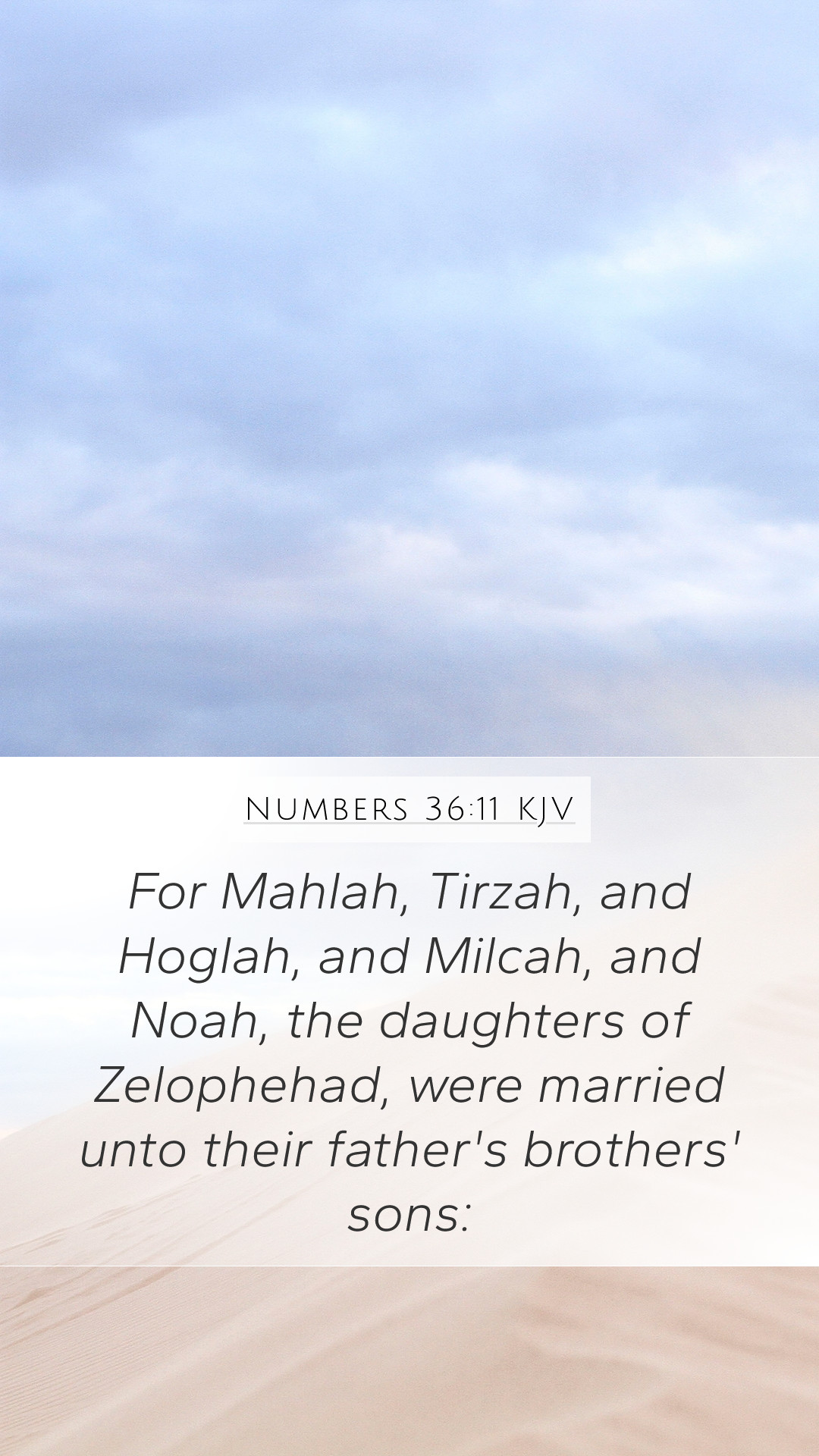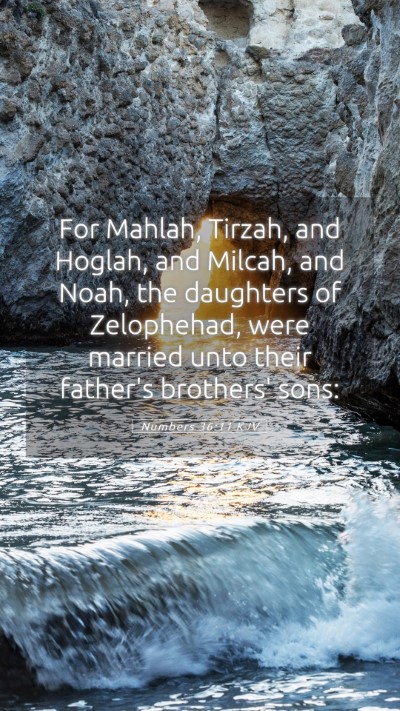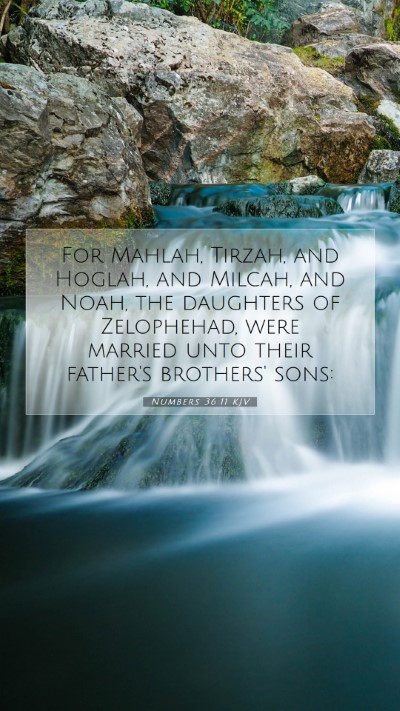Bible Verse Meaning and Commentary for Numbers 36:11
Selected Verse: "For Mahlah, Tirzah, Hoglah, Milcah, and Noah, the daughters of Zelophehad, are married to the sons of their father's brothers." (Numbers 36:11)
This verse relates to the complex issues surrounding inheritance laws within the Israelite community, particularly emphasizing the role of women in these societal structures. Here’s an in-depth analysis of the verse based on insights from respected public domain commentaries:
Verse Explanation
Numbers 36:11 concludes the narrative regarding the daughters of Zelophehad, who fought for their right to inheritance in the absence of a male heir. Their marrying within their tribe was essential not only to secure their family's legacy but also to uphold the inheritance laws prescribed in the Mosaic Law.
Commentary Insights
-
Matthew Henry:
Henry highlights the significance of the daughters securing their father's inheritance as a reflection of God’s justice and the rights allotted to women in society. He emphasizes that their choice to marry within the tribe ensured that the inheritance remained within the family, which upheld communal integrity.
-
Albert Barnes:
Barnes draws attention to the legal framework that guided Israel’s inheritance practices. He notes that the Daughters of Zelophehad represent a precedent for women's rights within a patriarchal structure and reflect a progressive understanding of inheritance that includes women's agency.
-
Adam Clarke:
Clarke elaborates on the implications of this verse in the larger context of Israel’s establishment. He sees this act as necessary for maintaining family ties and ensuring the perpetuation of names and holdings within the tribes of Israel, showing the divine consideration for family structures.
Broader Theological Implications
This verse serves as a reminder that God’s laws were designed to protect the welfare of all community members, addressing issues of justice and fairness, especially in terms of familial obligations and inheritance rights. It is an early testament to the idea that women can indeed hold rights to property and can be active participants in the covenant community.
Practical Applications
In a contemporary setting, Numbers 36:11 can inspire discussions in bible study groups about gender equity, inheritance, and the societal roles of women. Online Bible studies could delve deeply into:
- The evolution of women's rights in biblical contexts.
- The intersection of tradition and modern values regarding family and inheritance.
- The importance of understanding Scripture within its cultural and historical frameworks.
Cross References
This verse connects meaningfully with several other passages that explore similar themes:
- Numbers 27:1-11 - The daughters of Zelophehad demand their right to inheritance.
- Deuteronomy 21:15-17 - Laws regarding the rights of the firstborn son.
- 1 Peter 3:7 - An encouragement for understanding and honoring wives, highlighting their value.
Conclusion
Numbers 36:11 illustrates important themes within Bible study insights about the roles and rights of individuals in the community, particularly highlighting the progressive stance toward women's rights in ancient Israel. The implications of this verse continue to echo in discussions about justice, equity, and familial legacy in today’s world.


